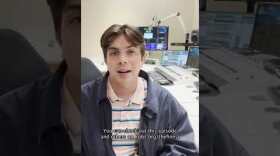
Lorie Hearn
Executive Director and Editor of inewsourceLorie Hearn is the executive director and editor of inewsource. She founded inewsource (formerly called the Watchdog Institute) in the summer of 2009, following a successful 35-year reporting and editing career in newspapers. She retired from The San Diego Union-Tribune, where she had been a reporter, Metro Editor and finally the senior editor for Metro and Watchdog Journalism. In addition to department oversight, Hearn personally managed a four-person watchdog team, composed of two data specialists and two investigative reporters. Hearn was a Nieman Foundation fellow at Harvard University in 1994-95. She focused on juvenile justice and drug control policy, a natural course to follow her years as a courts and legal affairs reporter at the San Diego Union and then the Union-Tribune. Hearn became Metro Editor in 1999 and oversaw regional and city news coverage, which included the city of San Diego’s financial debacle and near bankruptcy. Reporters and editors on Metro during her tenure were part of the Pulitzer Prize-winning stories that exposed Congressman Randy “Duke” Cunningham and led to his imprisonment. Hearn began her journalism career as a reporter for the Bucks County Courier Times, a small daily outside of Philadelphia, shortly after graduating from the University of Delaware in 1974. During the next two decades, she moved through countless beats at five newspapers on both coasts. High-profile coverage included the historic state Supreme Court election in 1986, when three sitting justices were ousted from the bench, and the 1992 execution of Robert Alton Harris. That gas chamber execution was the first time the death penalty was carried out in California in 25 years. In her nine years as Metro Editor at the Union-Tribune, Hearn made watchdog reporting a priority. Her reporters produced award-winning investigations covering large and small local governments. The depth and breadth of their public service work was most evident in coverage of the wildfires of 2003 and then 2007, when more than half a million people were evacuated from their homes. Contact Lorie at loriehearn@inewsource.org.
-
-
Images showing baby Mohammad Al-Motawaq captured world attention last month. In Israel, they were used to support claims that mass hunger in Gaza does not exist.
-
The two-hour meeting at the Lomas Santa Fe Country Club in Solana Beach featured discussions on what practices have worked in the county's 18 cities and identifying gaps in service where people can fall through the cracks.
-
The Police Records Access Project database, now available to the public, contains roughly 1.5 million pages of records from 12,000 officer-misconduct and use-of-force cases in California.
-
How do borders and personal crossroads affect an artist? How do science and craft interact? How do other cultures influence American style and technique? This episode explores the intersections of craft, culture, and technology. Featured artists include Tanya Aguiñiga, Lia Cook, Clary Illian, Warren MacKenzie, and Jeff Oestreich.
-
Potter Jeff Oestreich describes his work in CRAFT IN AMERICA "Crossroads"
- In Escondido, a school board member changes her name but not her politics
- SCUBA divers volunteer at San Diego's Birch Aquarium
- San Diego Unified is getting rid of some K-8 middle schools
- San Diego City Council to once again consider Balboa Park parking fees
- Elected officials announce proposed ordinance aimed at fed enforcement actions








